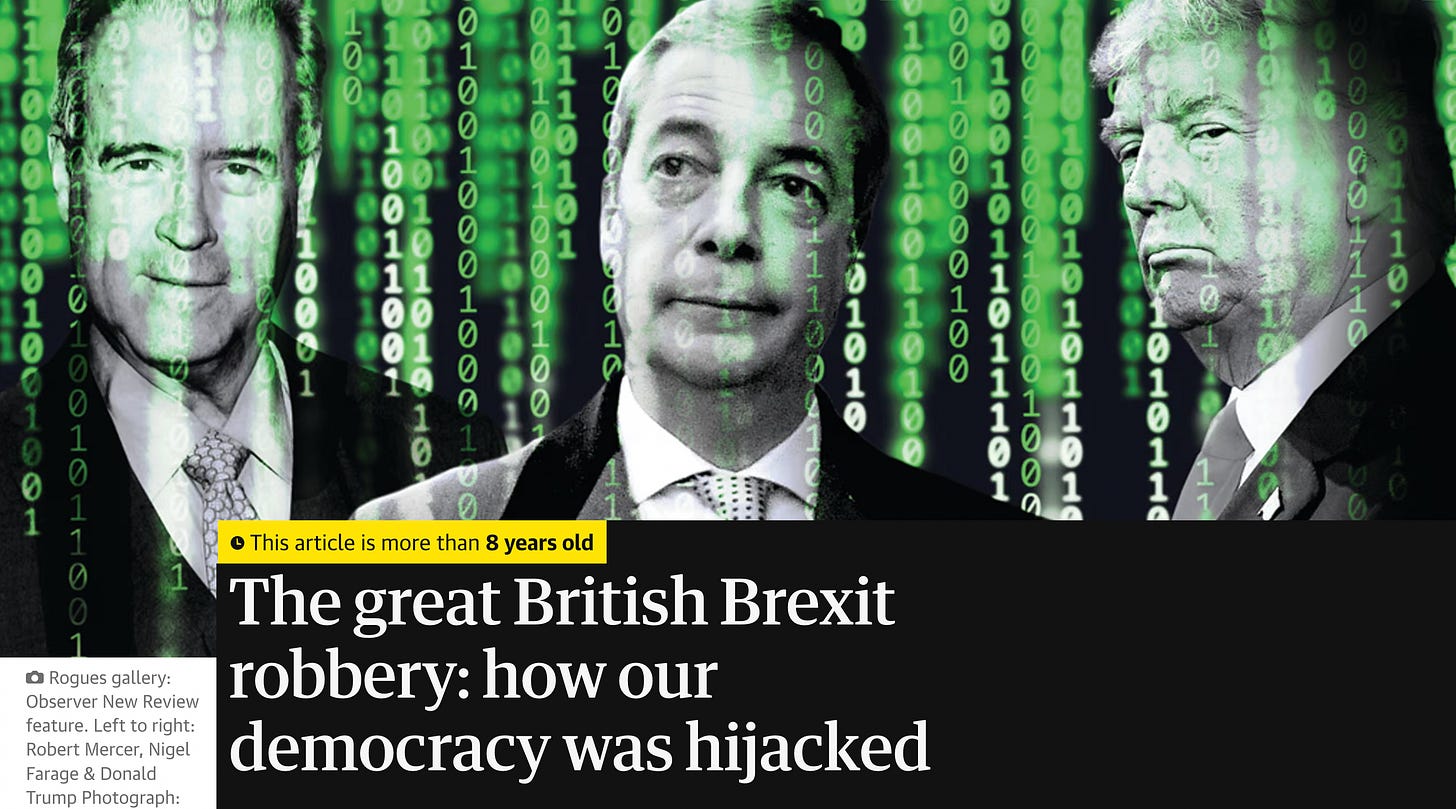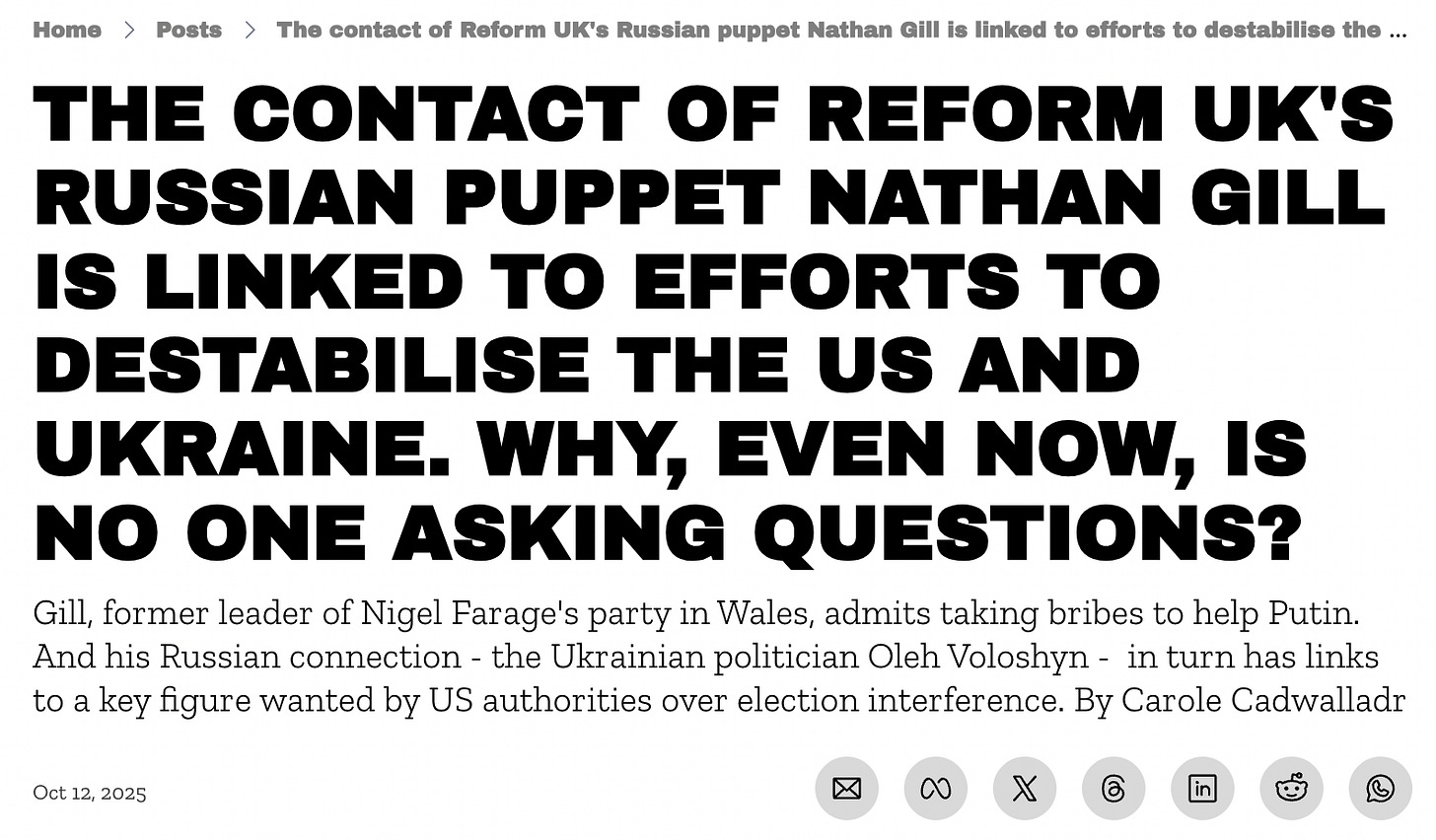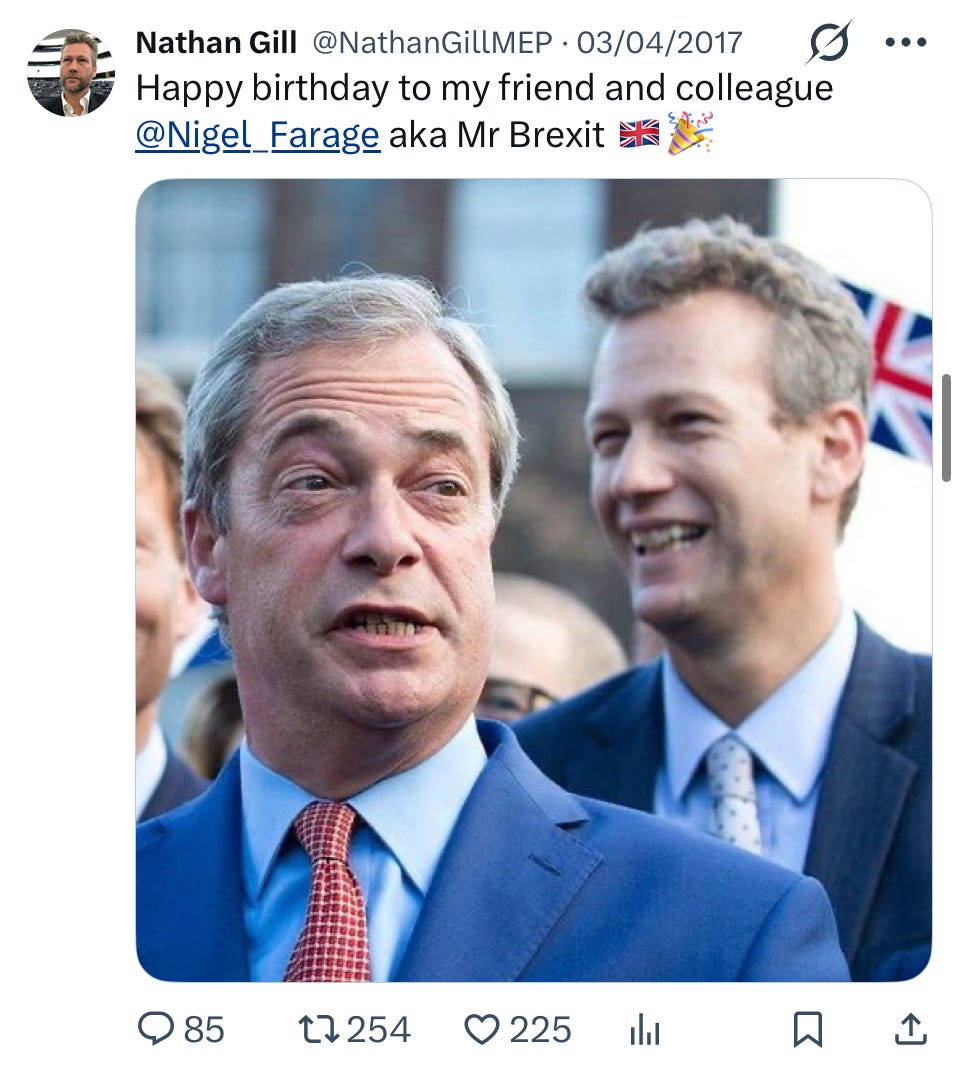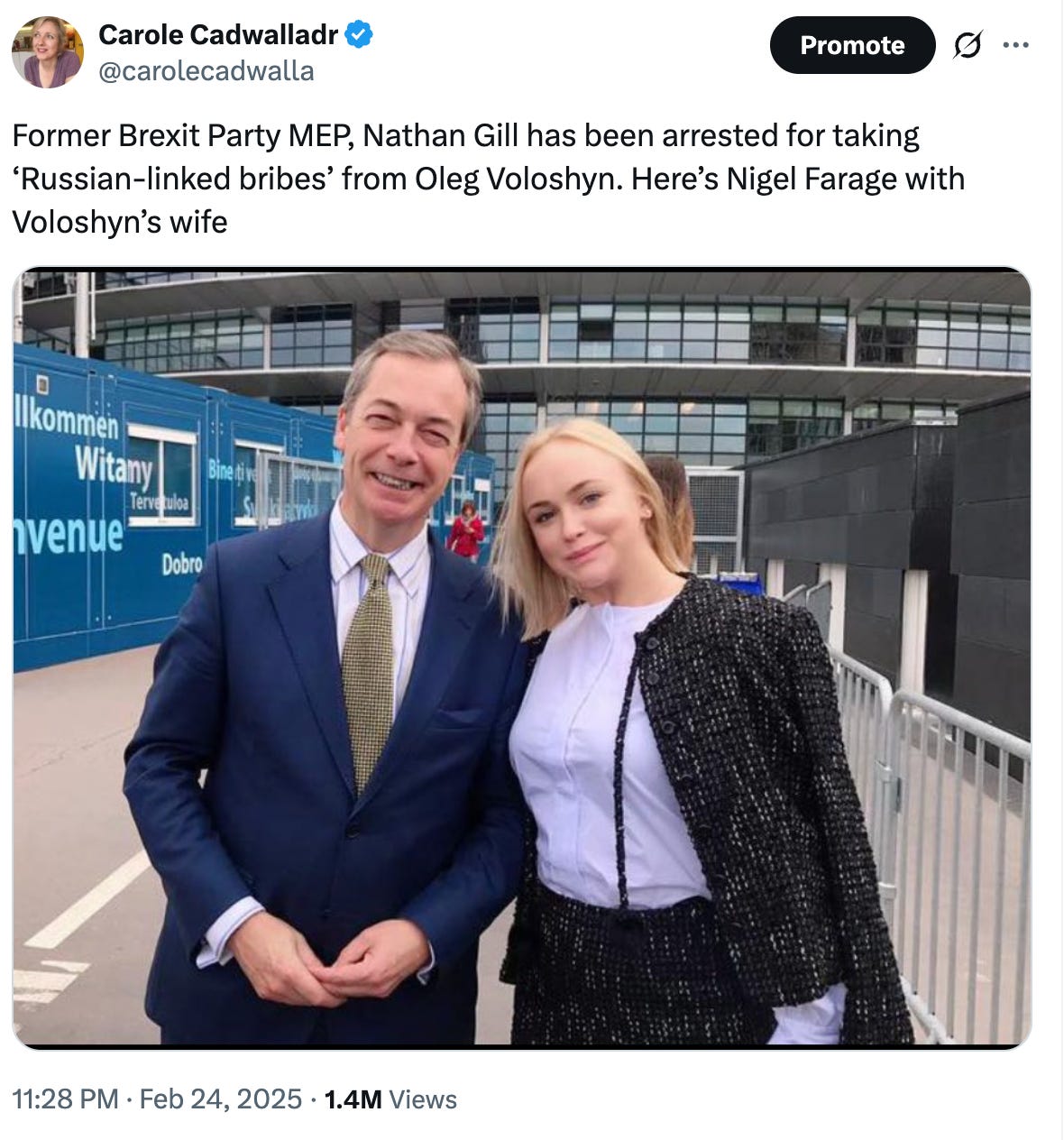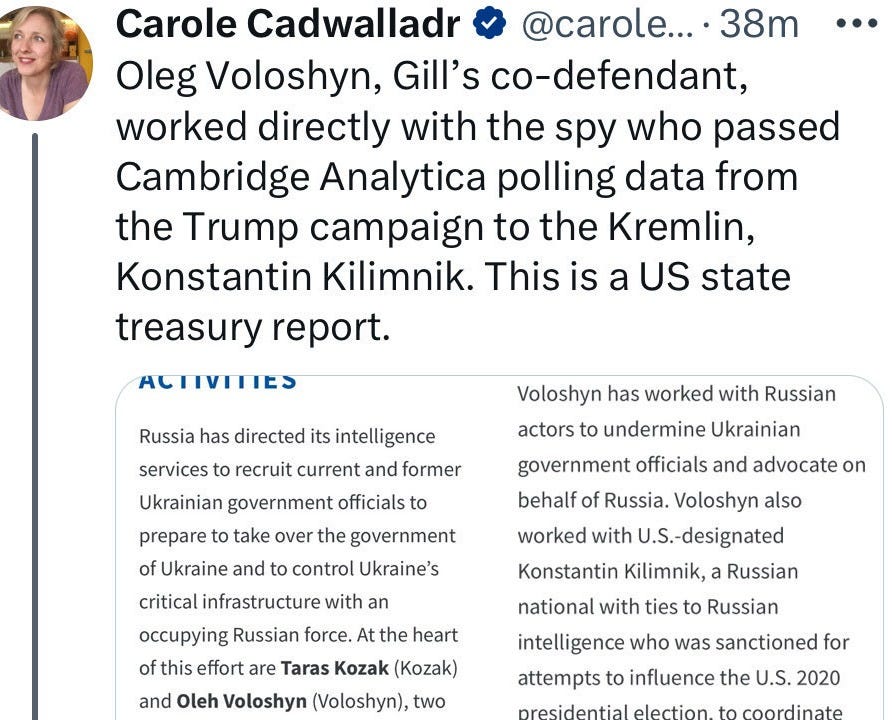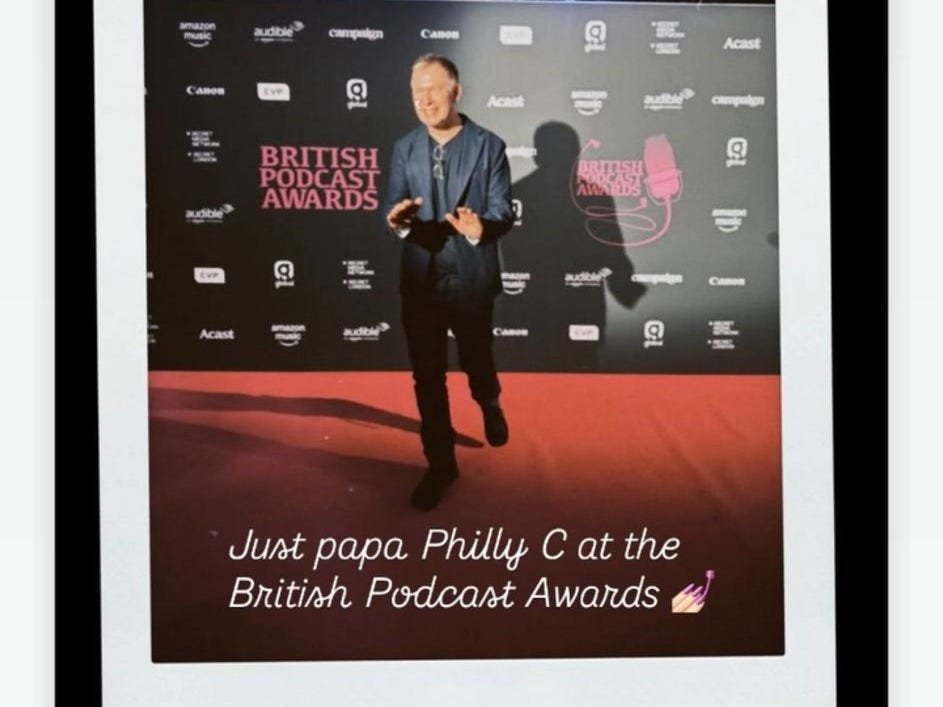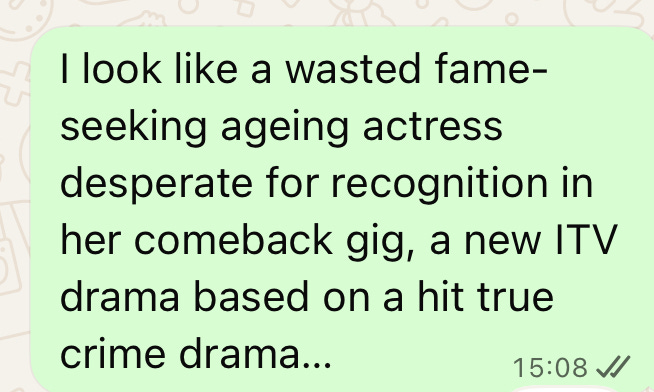We need to talk about Russia.
In a moment of escalating global emergencies, it’s hard to hold focus. The overwhelming enormity of what’s been happening in Gaza – and the US and UK complicity in it – has grasped so many of us in an enervating news chokehold.
But this week, we have to talk about Russia.
Since 2017, I have been writing about Trump, Russia and Brexit. Time and time and time again. I write about them because they are inextricably linked.
And Nigel Farage, friend and acolyte to Donald Trump, the leader of Britain’s Reform party, currently no 1 in the polls, and a master at manipulating the media has always been a key figure in that transatlantic axis. Farage has made pro-Russian statements in the EU parliament for years and for a long time was RT’s golden boy.
Eight years on, there’s been a dramatic breakthrough in Britain. It hasn’t yet hit the mainstream media, which is still ignoring the story beyond basic news reporting, but on social media, there’s now a growing understanding of the scale and import of this story. Namely, that two weeks ago, a political associate of Nigel Farage pleaded guilty to accepting “Russia-linked bribes”.
This isn’t some tinpot scandal of a bent politician and some dodgy dealing. It’s a portal into a network that’s been seeking to destabilise elections in both Ukraine and the USA. And the fact that Britain is oblivious to the import of this story and why it matters so profoundly fills me with a new wave of alarm.
That’s what I’ve written about today in the Nerve. That’s the brand-new media start-up I’ve launched with my fellow refugees from the Guardian and Observer newspapers. More on that, below.
But first, I wanted to point out, how with the same editorial and creative team behind the Nerve, we published this story in the Guardian & Observer.
It was one of the early foundational pieces I wrote about the twin insurgencies of the 2016 – the UK Brexit referendum and the election of Donald Trump – and the role that social media played in them.
It was edited by Sarah Donaldson who’s now leading the Nerve. And it had dramatic consequences: the next week saw the first of many legal letters from Cambridge Analytica threatening to sue us.
Ventral to the piece was not just the role of the Silicon Valley tech companies, but that of a hostile foreign power: Russia. I wrote the following paragraph eight years ago, but I might as well have written it yesterday:
Last week I wrote about the deals the UK government is doing with Trump-aligned Silicon Valley tech firms. And we really are tying our future to an America that is being remade – in a radical and alarming way by Trump.
Meanwhile, the UK mainstream media and political establishment is again asleep at the wheel. The Kremlin handler at the centre of this new UK bribe scandal was part of a network of pro-Russian actors sanctioned by the US government for seeking to destabilise Ukraine. And in my article, I also focus on how the directly connect to Putin’s attack on the 2016 and 2020 US elections.
What’s key to remember in all of this is that Russia’s information warfare against the west is exactly that: it’s warfare. It’s a military strategy and it’s been overwhelming successful in the last decade.
If you’ve come this far, I want to pause briefly. Many of you will know about a long-running lawsuit that debilitated me for years. A lawsuit brought by a man whose a close associate of Farage and who funded his Brexit campaign. I’m not going to publish photos of him here with Farage and the man at the centre of this new scandal but they’re out there.
That lawsuit was brought as a result of the investigative reporting I did for the Guardian and Observer newspaper but I fought the lawsuit alone. I repeated words published in the Guardian on the TED main stage. But the legal claim was directed only at me, not at the Guardian or TED. That’s what made 19 press freedom organisations so clear that this was a SLAPP – a lawsuit designed to shut me up. Which it did, for a long time.
I’ve always said how we need robust, brave mainstream news organisations to do the tough reporting required in these increasingly alarming times. But when tested, the Guardian failed and it’s a big part of not only what’s motivated me to launch the Nerve, but to be clear about the Nerve needs to be.
Drew Sullivan, the fearless editor of the Overseas Crime and Corruption Reporting Project, told me that there are two golden rules his organisation follows when they get sued (which is often): always always protect the journalist first. Even if they’re a freelancer. In fact, he says especially if they’re a freelancer. You have to operate a no man left behind policy. And, the second rule, Drew says, is that you always, double down on your reporting. You cannot let the people bringing the court cases win.
We need brave, bold independent news organisations more than ever. And it’s why, in this week 2 of the Nerve, I’m back writing about Russia’s relationship with UK political figures, despite the years of pain and grief. A story that was silenced through those years. (There’s no suggestion the man who sued me is implicated in this latest scandal.)
But it has risks. And we need your support. It’s been hugely cheering. We blasted through our three month subscription targets in less than a week so thank you to everyone who signed up. But we need more support. .
My reporting – and its consequences – brings a heavy price (literally, you should see our insurance premium).
Do sign up to our free twice-weekly newsletters and if you can afford to support fearless, independent journalism (with laughs), we’d be hugely grateful.
The scandal
Some quick points here.
This is the guy at the centre of it all. He’s pleaded guilty to taking bribes to make pro-Kremlin statements. [He’s called Nathan Gill and he’s the one on the right]:
Nathan Gill’s co-defendant and the one who gave him the bribes was a Ukrainian politician who the US authorities describe as an “FSB pawn”. Here’s his wife with Nigel Farage:
I wrote that tweet on the day late at night on the day that the charges against Nathan Gill were revealed. In fact I wrote a whole Twitter thread that night because it really was the work of minutes to realise who Voloshyn was and how extensive and important his network is.
Because, drum roll, I could see immediately that Voloshyn was a close associate of a Russian intelligence officer I’ve tracked for years, one Konstantin Kilminik.
Someone who has been of interest to me since I first heard of him and who, in 2020, was revealed to be….drum roll…
I deleted that tweet and the rest of the thread a few minutes after posting because three big words suddenly leapt to mind: “contempt of court”. In Britain, strict reporting restrictions apply once someone has been charged. It’s a totally different news environment from America. You can disclose only basic facts about them, nothing that could influence a potential jury. (In the whole of the last decade, no-one I’d investigated had ever been charged hence the brain fart.)
But Gill has now pleaded guilty and all this can be reported. It’s just that no-one in the so-called mainstream media has. Over at independent outlet, Byline Times, my pal Peter Jukes, did an excellent report on Gill’s role in efforts to destablise Ukraine as well as his relationship with Farage. (There’s no suggestion that Nigel Farage has taken any money from Russian-linked individuals.)
But for the Nerve, I wanted to do more on this guy:
Kilimnik has been a source of fascination for me for years since US investigators identified him as a key Russian intelligence conduit between the 2016 Trump campaign and the Kremlin.
What we know is that Paul Manafort, then Trump’s campaign manager, arranged for sensitive polling data to be shared with him. And for many senior people involved in investigating the Trump’s campaign links to the Russian government, this fact has always been one of the most concrete pieces of evidence of collusion in the entire Trump-Russia investigation.
And what brings things full circle, is that the data, from a Trump pollster, was processed by my old friends…Cambridge Analytica.
In fact, Konstantin Kilimnik actually owned a company with a Cambridge Analytica contractor, Sam Patten. (There’s so much more to tell you about this including the role of a Israeli cyberwarfare firm that hacked a president’s emails (Nigeria not the USA).)
Kilimnik is all over volume 5 of the Senate Intelligence Committee’s Report, an amazing 966-page document that, even more than the Mueller Report, forensically interrogated the evidence the FBI had gathered and drew its own conclusions.
His role in attempting to subvert the US election is covered in detail in the report but also his involvement in another influence operation: a peace plan for Ukraine.
And that brings us back to Nathan Gill. It was a version of that ‘peace plan’ for Ukraine that was he was tasked – and paid – to promote.
What’s so disturbing to me right now is how blind and naive and compromised Britain is in all this. I’ve been investigating this story since November 2016 and from 2020, I’ve worked with a group of MPs on a legal challenge against the UK government to get a proper inquiry.
There’s more about my work with the non-profit, the Citizens, on that here.
And a link to our new crowdfunder here. We have news coming soon on the next stage in that legal case but we need public support. I’m sorry to include not one but two begging notes in this newsletter but I will point out that the public interest work I did over years on that campaign was unpaid and every penny of this will go towards getting the inquiry that Britain so desperately needs.
And I also want to spell out the stakes.
As the US succumbs to a populist authoritarian takeover, the UK needs to be a pillar of liberal democracy that buttresses it from the outside, a safe harbour. Instead, it’s increasingly looking like the next domino to fall. And almost no-one here seems fully alive to what that will mean.
If you’re paying any attention at all to US news, the spectacle of former FBI director James Comey in the dock this week was genuinely chilling. Comey instigated the FBI’s investigation into the Trump campaign’s relationship with Russian officials. He lost his job over it. And now through a weaponized Department of Justice, Trump is seeking his revenge.
Britain simply turned the other way. The only thing we know is that the MPs who oversaw parliament’s Russia Report told us that the intelligence services had turned a blind eye even though there’s mountains of that evidence that’s been sitting in plain sight for years.
And, to return to where I began with this newsletter, it’s not just the government that has failed to do its job, the media has too. This entire investigation involved Brexit, the black hole that a right-wing owned media wouldn’t touch and the BBC baulked at.
Earlier this week, I had a vague memory of debating a former UKIP MEP, a colleague of Gill’s and Farage’s in the European parliament, on Al Jazeera. I said yes because, only non-UK outlets have always been far more diligent in following this story than UK ones.
I found the clip, from 2018, in which Mehdi Hasan, directly and boldly in a way no-one in the UK press ever has, asks the MEP about whether UKIP had accepted Russian funding. (Also enjoy my facial expressions.)
I was wrong. I said that it’s not the case that politicians were just given Kremlin bungs. We now know they were. Are? And it’s not a coincidence that Mehdi, one of Britain’s best broadcasters, has made his career outside the UK. He went from Al Jazeera to CNN and when he was benched by the organisation over his views on Gaza, he simply quit and set up his own, Zeteo. And to bring things around in an even fuller circle, that’s been one of our sources of inspiration for the Nerve.
Pigeons and doves: a parable
Finally, some jolly photos and chat.
Just over a week ago, Hannah, my ex’s daughter and the star of the BBC podcast that we made together, Stalked, rang me early one morning.
We’d got home late after a transport ordeal which saw us trying to get out of London’s O2 arena after a Lady Gaga concert. We’d not been at the concert but the British Podcast Awards in the venue next door. And we were both laughing at the messages landing in a WhatsApp chat.
Stalked had been nominated for three awards. And Sergei and the Westminster Spy Ring, had been up for another three. That’s the independent podcast we’d produced on a crowdfunded shoestring through the Citizens about everything I’ve been writing about above, Russian interference in UK politics.
Six nominations was an unlikely haul in the circumstances. (To put it in perspective, I’ll give two completely random comparisons: the Guardian was up for two awards. And Tortoise, the podcast company that the Guardian gave the Observer to, was up for none at all.)
The BBC had bought me a ticket and Ruth Abrahams the brilliant producer of Sergei had somehow wangled some bursary tickets out of the award organisers for the povos from the non-profit and shelled out £140 each for a couple more.
But then we found we couldn’t even sit together. The Sergei crew on the poverty tickets was banished to Siberia in a deathzone in the upper tier of the venue, miles from the action. And even on the BBC’s £300-a-pop tickets, there was no dinner or, by the time we’d got there, even alcohol.
That morning, half the messages were about the industrial awards scam complex and Sergei’s genuine affront at the ‘crassness’ of the elitist seating and the ‘naff’ (his words) polyester cushions being handed out as prizes all while Hannah’s Millennial photo skills had made it look like the Oscars.
Compare & contrast:

Hannah’s Millennial Instagram account was the subject of much joshery in Stalked but last week, she claimed she’d proved her point. “Pigeons are just doves with poor marketing skills,” she told me on the phone that morning “They’re literally pigeons with a media strategy.”
Anyhow, she has a point. She reposted an Insta pic of one of our team, Phil Channell, looking like Clooney at the Academy Awards in an Insta post his daughter had proudly shared.
I’m proud too. The crowdfunded Indie podcast made on a shoestring made sure Phil was there and he’d come down from Liverpool for it. He’s the composer of the original music for both Stalked & Sergei and his music and Ruth and Georgia’s skill at arranging it was one of my favourite things about the finished podcasts. Phil was up for the full six awards and he had to be there. No man left behind.
That ought to be the golden rule of journalism. That it’s not is and that freelancers always get the bum end of the deal is one of many problems with what is an extractive industry with a terrible labour record. Freelancers if you have stories and want to work with a team that has your back, please pitch to us at the Nerve.
Anyhow, thank you so much to everyone who helped us fund the Sergei podcast and the legal challenge behind it. Both these projects were important – if completely different – stories that featured original investigative public interest reporting. We ended up with one win for Stalked for best documentary. (I shall note without commentary that we were pipped at the post in the top Spotlight category by Traitors Uncloaked.)
But best of all, they were both huge amounts of fun to make with terrific teams led by terrific producers, the brilliant Georgia Catt and Ruth Abrahams. I’m honestly not just saying that. They were both the most satisfying, creative and fun journalistic projects I’ve worked on in recent times and what I appreciated is how they reached a completely different audience from my printed work.
And because I’m not a Millennial and still haven’t grasped how to use Instagram (though I am there and will at some point get to grips with it), I’m posting some photos here:
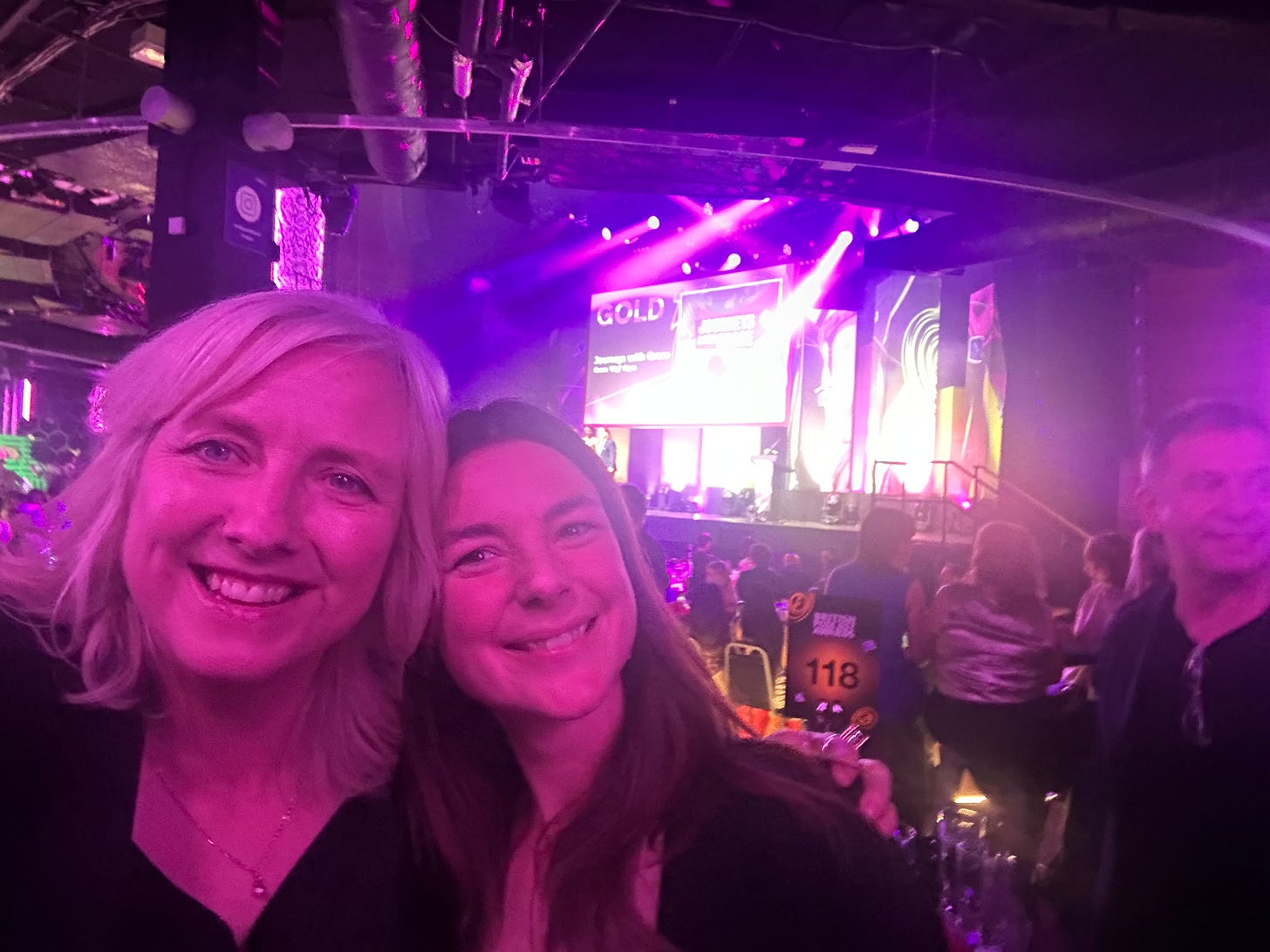
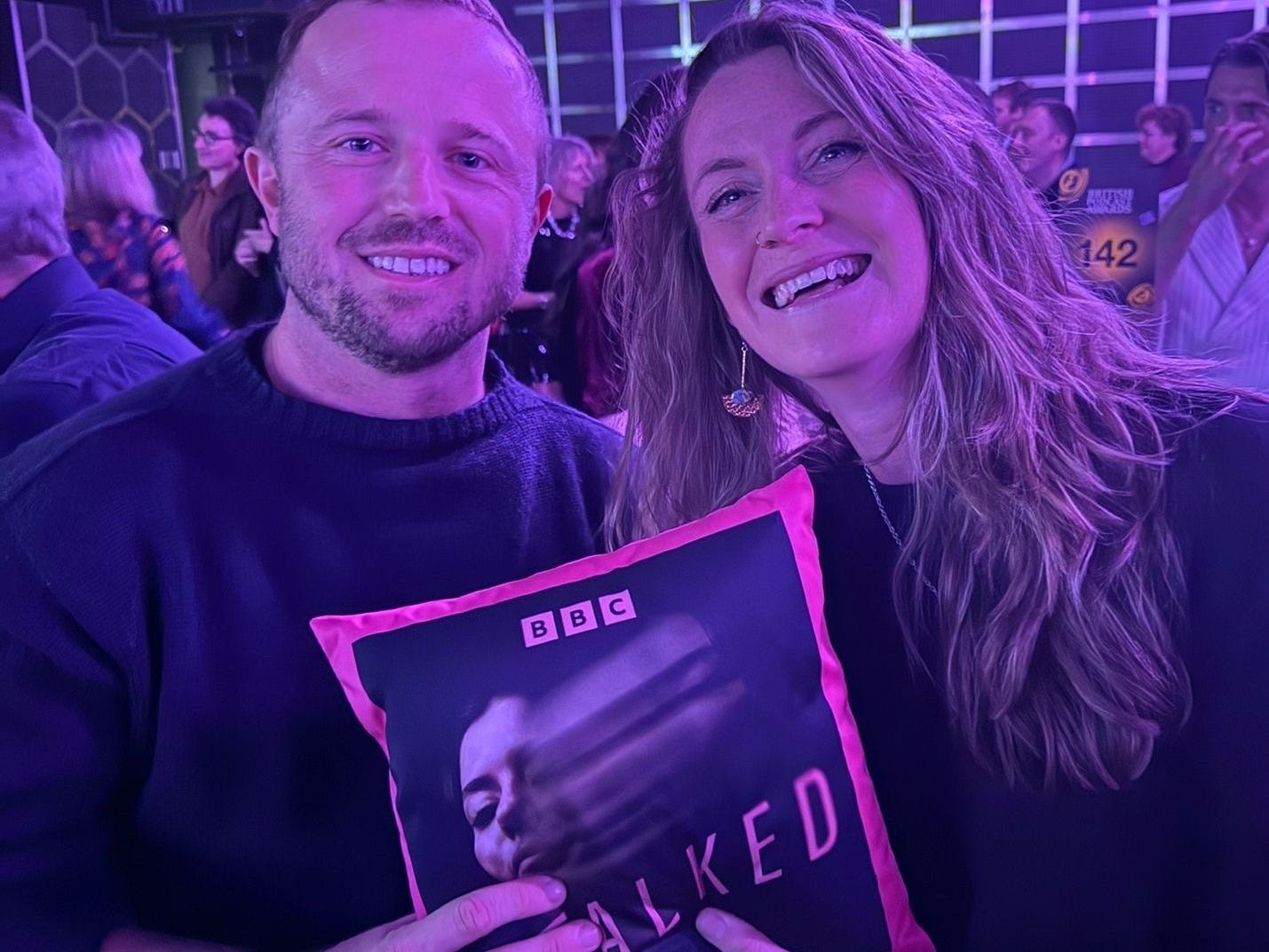
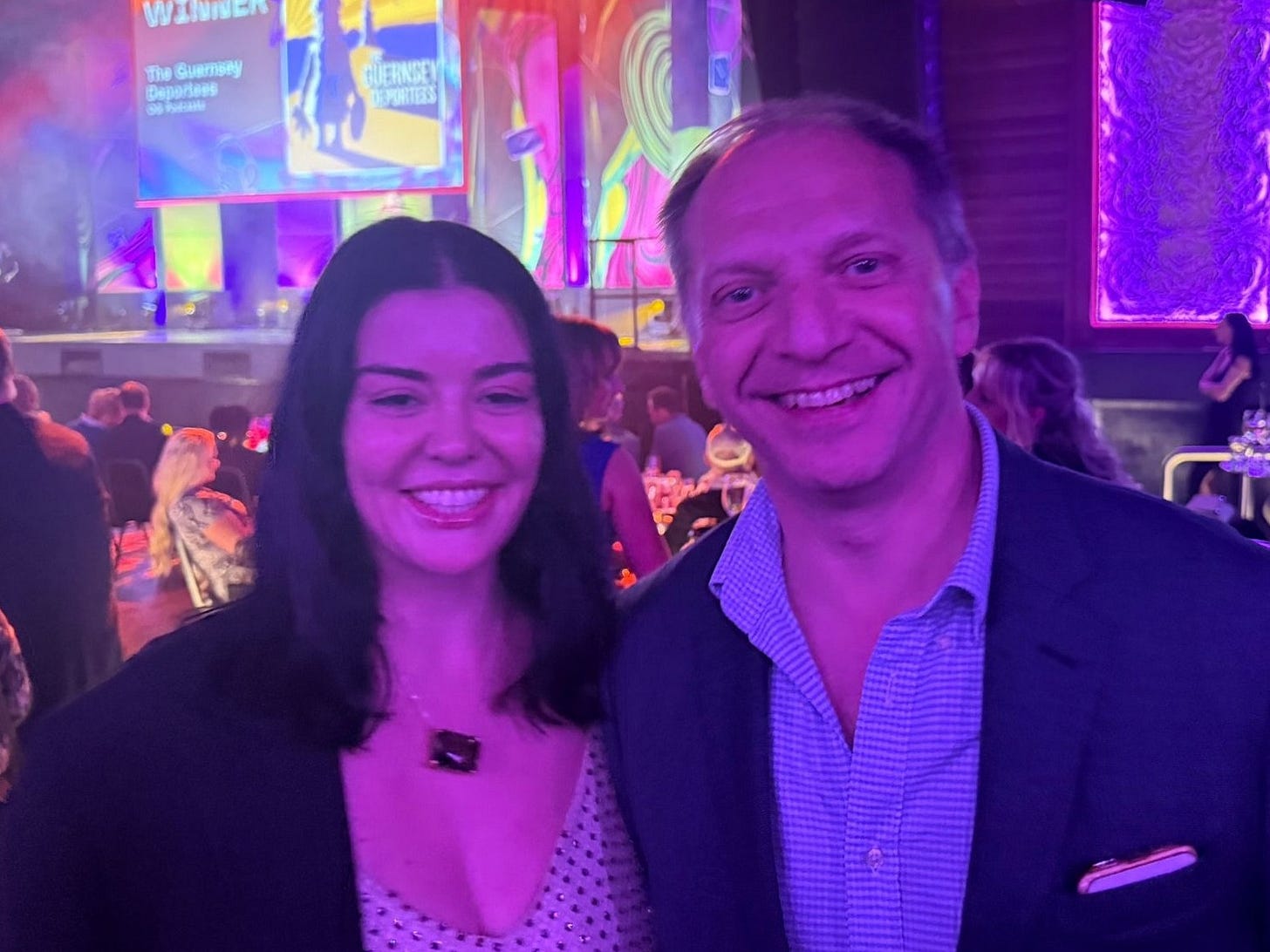
Both podcasts are on Apple & Spotify and anywhere else you get them. (Sergei is here on Apple and Stalked is here And if you did listen to Sergei and were able to help with the next stage of the legal challenge, just a reminder that our new crowdfunder is here.
Right. That really is it now. More soon.
PS: As I explained in the group chat, this is why I’m not pasting any of the red carpet pix Hannah took of me:
This post has been syndicated from How to Survive the Broligarchy, where it was published under this address.

